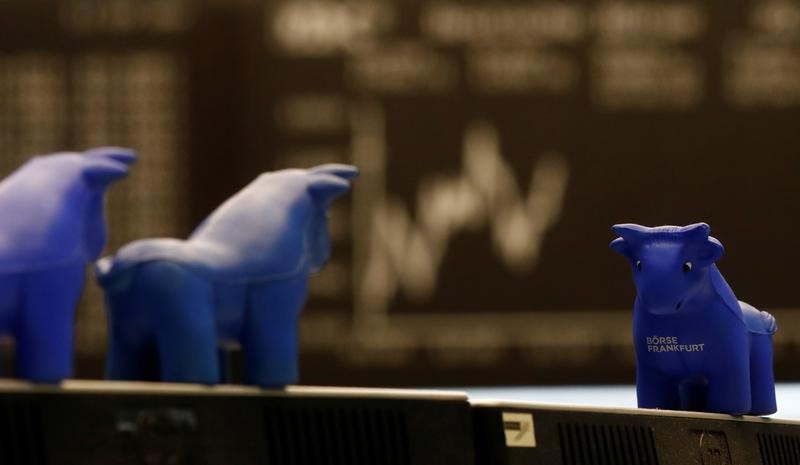By Peter Nurse
Investing.com - European stock markets edged higher Wednesday, rebounding after the previous session’s weakness as consumer sentiment picked up in Germany, the Eurozone’s dominant economy.
At 03:40 ET (08:40 GMT), the DAX index in Germany traded 0.5% higher, the FTSE 100 in the U.K. climbed 0.2%, and CAC 40 in France traded up 0.5%.
Germany's consumer sentiment is set to show a small improvement in January, according to the forward-looking index released by the GfK institute earlier Wednesday.
The index came in at -37.8, showing a small but gradual improvement from the revised -40.1 the prior month, and October’s -42.8, the lowest reading in over a decade, as government energy measures helped stabilize morale.
"The light at the end of the tunnel is getting somewhat brighter," said GfK analyst Rolf Buerkl, pointing to government plans to cap energy prices.
This follows on from data released earlier this week that showed German business morale rose more than expected in December, with the Ifo institute indicating that the outlook for Europe's largest economy improved despite the energy crisis and high inflation.
This is helping European equity markets attempt to end the year on a more positive tone, amid hopes that the economic slowdown expected for the start of 2023 may not be as bad as feared.
European stocks had closed Tuesday largely lower as investors had been caught by surprise by the decision of the Bank of Japan to widen its cap on 10-year Japanese government bond yields, potentially signaling the end of the last ultra-easy monetary stance in the developed world.
Elsewhere, Ukrainian President Volodymyr Zelenskiy is expected to travel to Washington to meet President Joe Biden and visit Congress later Wednesday as his country continues to suffer from Russia’s aggression.
In corporate news, Bunzl (LON:BNZL) stock fell 0.7% after the British distribution specialist said it expects adjusted earnings per share to be “moderately lower” than last year as a result of higher interest rates and an increased effective tax rate, although it still expects to deliver a surge in top-line growth in 2022, helped by a string of acquisitions.
Oil prices edged higher Wednesday, boosted by a larger-than-expected reduction in U.S. crude inventories amid supply disruptions caused by the temporary closure of the Keystone pipeline.
U.S. crude stocks fell by just over 3 million barrels in the week to Dec. 16, according to data from the industry body American Petroleum Institute.
The Energy Information Administration is set to release the official inventory figures later in the session.
By 03:40 ET, U.S. crude futures traded 0.2% higher at $76.35 a barrel, while the Brent contract rose 0.3% to $80.22.
While oil prices have risen in recent sessions, they are still nursing sharp losses over the last few months as rising interest rates and high inflation fed into concerns over a potential recession in 2023.
Additionally, gold futures fell 0.1% to $1,825.05/oz, while EUR/USD traded 0.1% higher at 1.0626.
